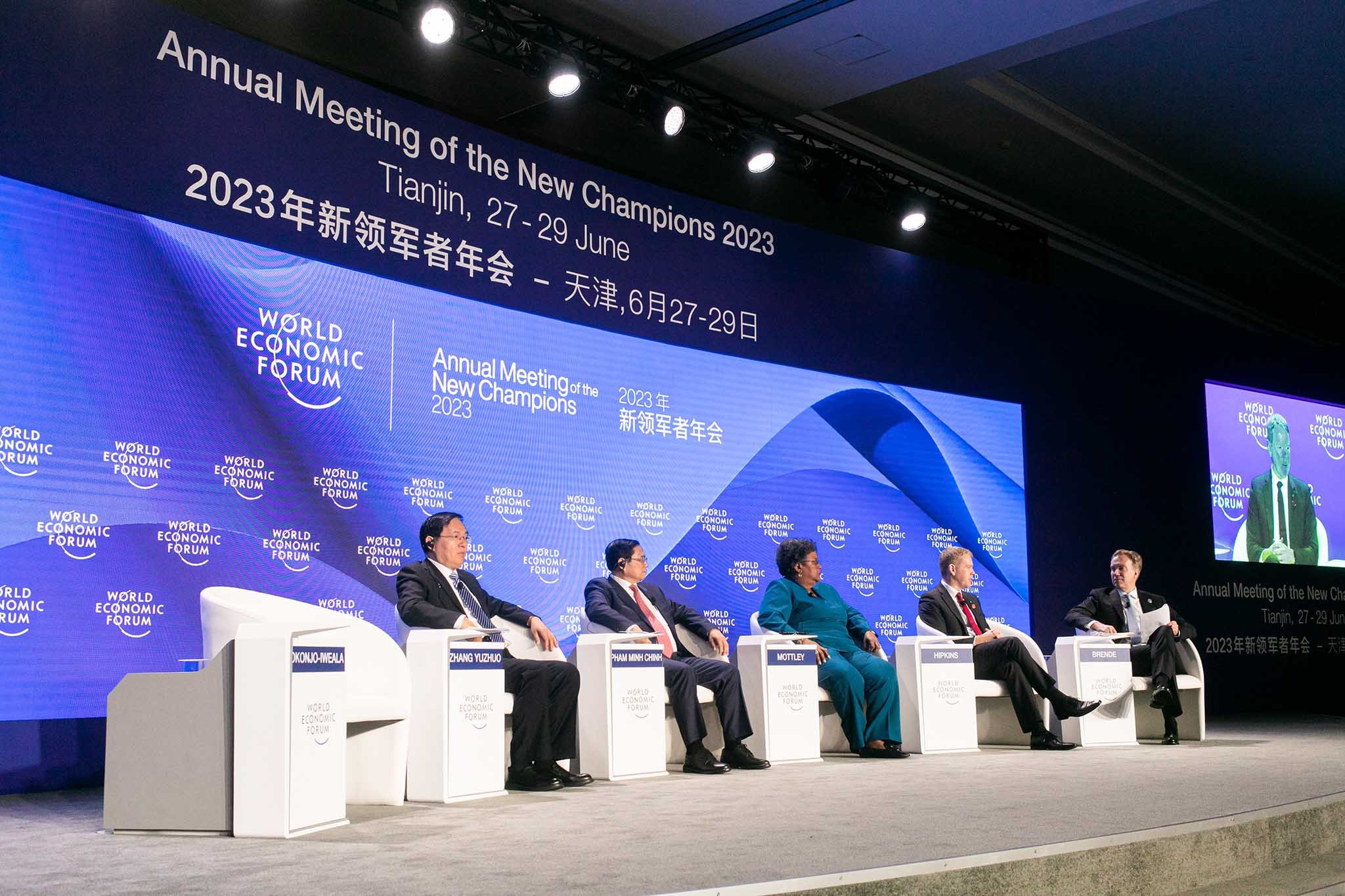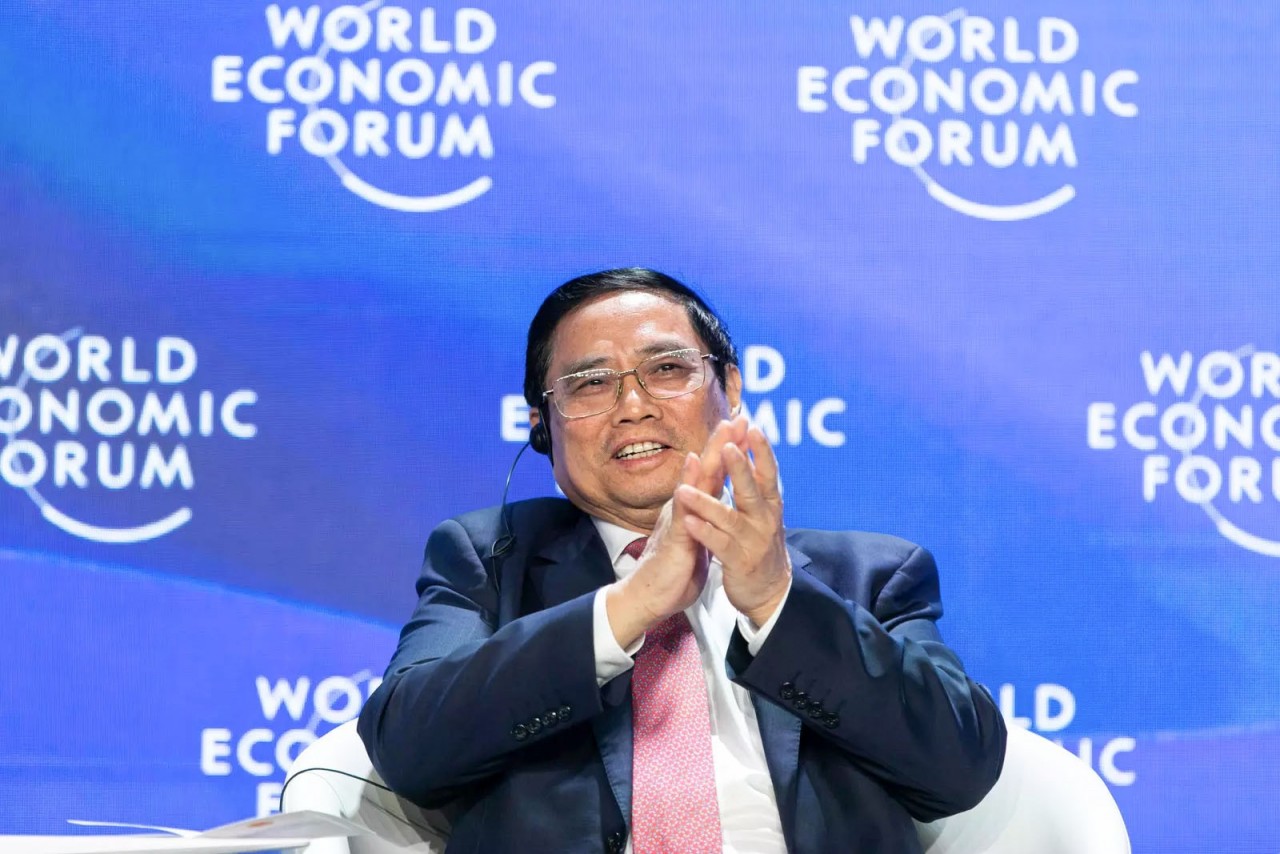
Prime Minister outlines approaches, orientations against "headwinds" at WEF debate in Tianjin
Latest
 |
| Prime Minister Pham Minh Chinh emphasised the importance of global and all-people approaches to and response measures against “headwinds” that are hindering economic growth of the world and Vietnam. (Photo: Duong Giang) |
Addressing a debate themed “Braving the Headwinds: Rewiring Growth Amid Fragility” within the framework of the 14th Annual Meeting of the New Champions (AMNC) of the World Economic Forum (WEF) in Tianjin, China, Prime Minister Chinh noted that there are currently six “headwinds” which are global economic recession and rising inflation; prolonged consequences of the COVID-19 pandemic on the world economy; geostrategic competition, protectionism, separation, fragmentation, and lack of cohesion; conflicts which threaten global food and energy security; developing countries hardest hit and having limited capacity to adapt to and withstand external shocks; and increasingly complicated and unpredictable climate change, natural disasters and epidemics.
To cope with these problems, the Vietnamese leader stressed the need to strengthen international solidarity and promote multilateralism, and consider the people as the subject, the centre, the resources and the driving force for development; and focus on recovering production and business, creating jobs, promoting trade and investment, and creating capital flows, markets and products.
International organisations and financial institutions, and big countries need to issue policies to unlock resources and activate new growth drivers in terms of digital transformation, green growth and circular economy; diversify markets; and prevent protectionism, with priorities given to poor and developing nations, Prime Minister Chinh said.
 |
| Prime Minister outlines approaches, orientations against "headwinds" at WEF debate in Tianjin. (Photo: WEF) |
According to the Prime Minister, attention should be paid to taking appropriate solutions to promote the total supply and demand through monetary and fiscal policies, stepping up trade and investment liberalisation, and reducing energy and food prices; not politicising economic relations, and minimising factors that hinder global development; early seeking solutions to solve conflicts; and strengthening public-private partnership, and creating favourable conditions for businesses, especially small- and medium-sized enterprises.
Prime Minister Chinh also shared Vietnam's experiences and lessons in the fight against the COVID-19 pandemic and in the post-pandemic economic recovery and development process. Vietnam has continued to focus on implementing three strategic breakthroughs in terms of infrastructure - institutions - human resources, he said, noting that Vietnam's consistent view is not to sacrifice social equity and security, and environmental protection to pursue mere growth.
He pledged that Vietnam will continue creating the most favourable conditions for international and domestic enterprises, and improving its business investment environment.
The Vietnamese leader suggested countries and international organisations, including the WEF and its members, maintain cooperation with and assistance to Vietnam in terms of technology, finance, human resources training and modern governance expereinces to help the nation realise its socio-economic development goals.
Acknowledging Prime Minister Chinh’s opinions and orientations, WEF President Borge Brende said that the international community has recognised Vietnam as one of the countries with high economic growth in the region, which is developing dynamically and has a lot of potential to contribute more and more to regional and global economic growth.
The AMNC is the WEF's second largest event after the annual meeting in Davos. This year's event has attracted the participation of more than 1,400 delegates who are leaders and ministers of 21 countries, and leaders from 850 global corporations, agencies and organisations. Vietnam is one of the five countries invited to attend at the Prime Minister level, along with the prime ministers of China, New Zealand, Mongolia and Barbados.













